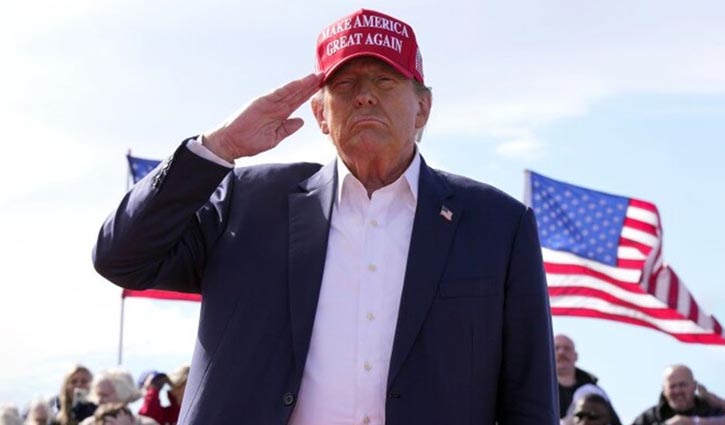What Trump`s win means for Ukraine, Middle East and China
Desk Report || risingbd.com

Donald Trump’s return to the White House is set to reshape US foreign policy, promising potentially radical shifts on multiple fronts as war and uncertainty grip parts of the world, reports BBC.
During his campaign, Trump made broad policy pledges, often lacking specific details, based on principles of non-interventionism and trade protectionism - or as he puts it “America First”.
His victory signals one of the most significant potential disruptions in many years in Washington’s approach to foreign affairs in the midst of parallel crises.
We can piece together some of his likely approach to different areas from both his comments on the campaign trail and his track record in office from 2017 to 2021.
Russia, Ukraine and Nato
During the campaign, Trump repeatedly said he could end the war between Russia and Ukraine “in a day”. When asked how, he suggested overseeing a deal, but has declined to give specifics.
A research paper written by two of Trump’s former national security chiefs in May said the US should continue its weapons supply to Ukraine, but make the support conditional on Kyiv entering peace talks with Russia.
To entice Russia, the West would promise to delay Ukraine’s much-wanted entry into Nato. The former advisers said Ukraine should not give up its hopes of getting all of its territory back from Russian occupation, but that it should negotiate based on current front lines.
Trump’s Democratic opponents, who accuse him of cosying up to Russian President Vladimir Putin, say his approach amounts to surrender for Ukraine and will endanger all of Europe.
He has consistently said his priority is to end the war and stem the drain on US resources.
The Middle East
As with Ukraine, Trump has promised to bring “peace” to the Middle East - implying he would end the Israel-Hamas war in Gaza and the Israel-Hezbollah war in Lebanon - but has not said how.
He has repeatedly said that, if he had been in power rather than Joe Biden, Hamas would not have attacked Israel because of his “maximum pressure” policy on Iran, which funds the group.
Broadly, it’s likely Trump would attempt to return to the policy, which saw his administration pull the US out of the Iran nuclear deal, apply greater sanctions against Iran and kill Gen Qasem Soleimani - Iran’s most powerful military commander.
In the White House, Trump enacted strongly pro-Israel policies, naming Jerusalem as Israel’s capital and moving the US embassy there from Tel Aviv - a move which energised Trump’s Christian evangelical base, a core Republican voter group.
China and trade
America’s approach to China is its most strategically important area of foreign policy - and one which has the biggest implications for global security and trade.
When he was in office, Trump labelled China a “strategic competitor” and imposed tariffs on some Chinese imports to the US. This sparked tit-for-tat tariffs by Beijing on American imports.
There were efforts to de-escalate the trade dispute, but the Covid pandemic wiped out this possibility, and relations got worse as the former president labelled Covid a “Chinese virus”.
While the Biden administration claimed to take a more responsible approach to China policy, it did, in fact, keep in place many of the Trump-era tariffs on imports._Agencies.
Dhaka/Nasim



















